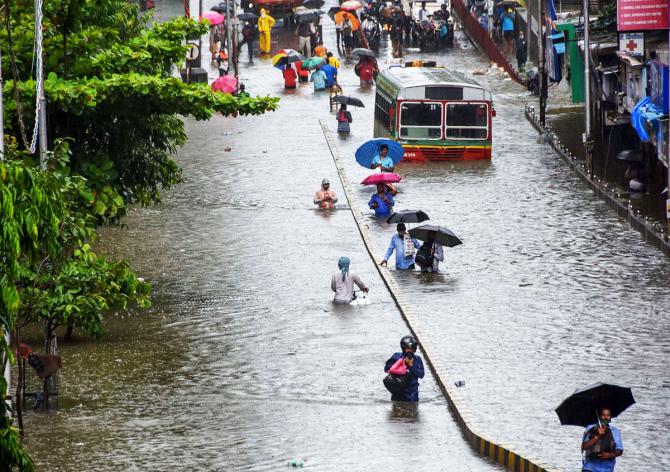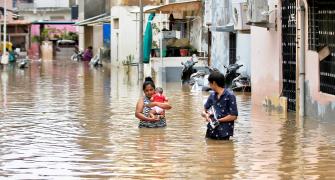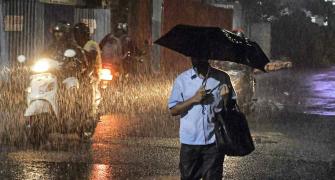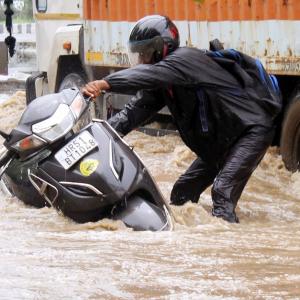'AI can be very useful for making analysis and especially making city-based local forecasts.'

The recent floods in Bengaluru have raised many concerns regarding the increase in extreme weather events and its impact on urban planning.
M Rajeevan, distinguished scientist at the National Centre for Earth Science Studies and former secretary of the ministry of Earth sciences, in an interview, tells Karthik Jerome/Business Standard that forecasting may go wrong because parameters and equations are derived from past data, and they may not work very well with the change in the mean temperature.
What challenges are weather forecasters facing in coming up with accurate predictions?
There is a general tendency (of the layman) to accept that weather forecasting can go wrong and climate change may have some impact. But we (scientists) cannot really quantify whether it is really happening or not.
It can happen in one way as the physical process of setting parameters and equations are derived from past data.
With the change in the mean temperature, the equations cannot work exactly as we want and there could be anomalies like how clouds are formed, the micro physics within the clouds, etc.
These changes in data can affect the forecast.
However, the physical laws remain the same, but the way we use these mathematical models can change.
How are the weather forecasters around the world dealing with this challenge? Since the data is limited, how is the IMD reshaping its tactics and tools?
Scientists need to keep increasing the present database.
The data that goes into the model needs to increase substantially as the previous day's data is used for the next day.
They need to look into the physics that they use in the model. But the IMD cannot do it alone and it's a universal problem, even in the USA.
It's a research problem. That's why instead of giving a quantitative model, they give an assembled forecast, where a mathematical model is run many times, around 50-60 times, which is then put in as a probability.
So, the scientists may not say that after a few days Mangaluru will get 5 cm of rainfall, but there is a 60-70 per cent probability that Mangaluru city will receive rainfall after five days.
That is itself a good forecast because based on these assembled/probability forecasts, we can make decisions.
That's why the IMD prefers these assembled forecasts.
Are you deploying any Artificial Intelligence (AI) or Machine Learning (ML) for your computation?
Of course. It is used for physical parameters and equations.
More importantly, for input and output data (forecast).
The output data generated is huge and to interpret these forecasts, which we call model output statistics, we use AI.
We started this a couple of years back.
We did have some ML methods a long time back, but it has gained more popularity recently.
The model will not give you a forecast of thunderstorms, but will give you parameters of whether the thunderstorms will occur or not.
AI can be very useful for making this analysis and especially making city-based local forecasts.
The Indian Institute of Tropical Meteorology, Pune, has a centre for AI for making these forecasts.
Are tailor-based products being designed to gauge climate-related impact for key sectors such as agriculture?
Yes, the IMD is doing that because just making forecasts is not enough. They have a tailor-made forecast for different sectors like water sources and agriculture.
In agriculture, the farmers have to put fertilisers that can get washed away in the rains.
So, they are given a time slot when the rains are not there so that they can apply fertilisers on time.
Soon, there will be one unit in every district to do this.
Feature Presentation: Ashish Narsale/Rediff.com











